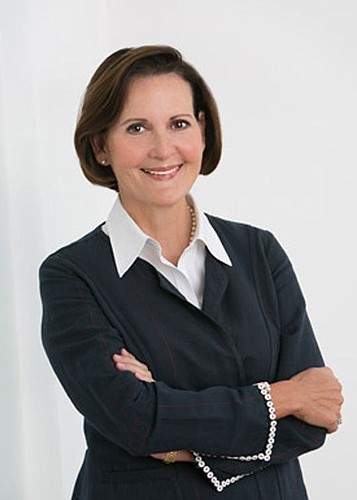
There probably is no way to know for sure whether it’s the lingering effects of the recession or that the world is changing, but there’s a new mindset among nonprofits when it comes to raising awareness and funds.
There are fewer “black-tie affairs” and more casual social and networking events, not as many direct requests for donations and more volunteer cleanup days at schools and social service facilities.
Nonprofits are taking a different approach to their business through strategic planning, according to Jayne Evans, marketing director at the Nonprofit Center of Northeast Florida.
She said understanding the audience is key to an organization being able to develop effective fundraising projects.
Events also may be used to raise awareness, build goodwill and identify potential new benefactors in addition to traditional fundraising to support a nonprofit’s programs or services.
“Events are examined on their ability to meet business objectives and deliver a strong return on the investment of staff time, volunteer efforts and of course, the financial return,” said Evans.
Warren Caterson agrees.
He’s been chief development officer at Daniel Memorial for the past three years and a nonprofit executive for about three decades.
Caterson said one of the drivers of change in raising funds for nonprofits is how corporate structures have changed.
“Years ago, most companies were locally owned. The founders and board members were all locals and they invested in local charities they were interested in,” he said.
That began to shift when large regional and national companies began acquiring smaller local businesses.
That was particularly evident in the banking industry as corporate decision makers wanted to increase their impact in terms of how many organizations they supported, said Caterson.
“As banks were bought out, smaller amounts were given to a lot more organizations. They might give $500 to several nonprofits instead of giving a $5,000 game-changer to one nonprofit. It’s just good for business,” he said.
Suzanne Hudson-Smith became director of development at the Florida Theatre Performing Arts Center in January.
Her career in fundraising began more than 20 years ago and she’s watched the evolution of what motivates donors and how organizations have had to adapt to the new rules.
“Years ago, when the nonprofit got the gift, the work was done,” said Hudson-Smith. “Now, the work begins after the gift. You have to show the donor the impact and continue the conversation.”
The means of raising funds also has changed, she said. That’s part of what’s led to fewer major annual events.
“Development professionals have had to change the way we think about why people give. It’s not so much about one night. It’s more about the future,” Hudson-Smith said.
“Younger donors want to be more involved rather than attend events. We have to provide donor opportunities that are meaningful to them,” said Caterson.
He also said the economics of events like annual galas makes them less effective for nonprofits.
“The return on investment is not good. You might raise $100,000 — and that sounds like a lot — but not with everything involved, including staff time,” Caterson said. “The net proceeds are a lot less than they used to be.”
For both executives, their jobs have become about building personal relationships.
“For me, it’s all about listening and helping the donor get connected in the right way,” said Hudson-Smith.
“Having a relationship with the CEO is better than having a relationship with the company and you have to get them involved personally,” Caterson said.
“It’s hard work. It takes a while to develop a relationship, but the return on investment is much higher,” he added.
(904) 356-2466